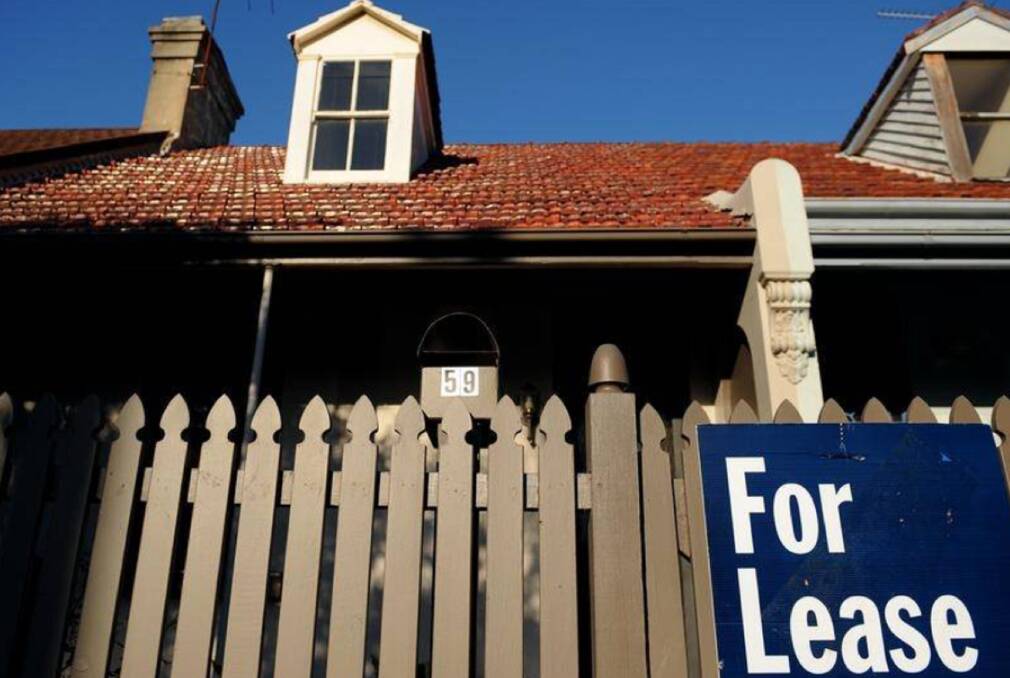
Amid concerns about the rapidly increasing unaffordability of housing in Tasmania and Australia more broadly, arguments for and against negative gearing persist.
Subscribe now for unlimited access.
or signup to continue reading
In the lead-up to the next federal election, there appears to be no political will to remove or alter this significant tax break for investors, nor to consider other tax measures that might help more people own their own home.
Negative gearing allows an investor to write off losses associated with an investment property against their overall annual income.
A property is negatively geared when the costs associated with it exceed its net rental income.
An investor can claim costs from interest payments on a loan, repairs, utility bills, council rates, and property management charges.
The Australian Labor Party has twice taken a policy to change negative gearing to the 2016 and 2019 federal elections.
The party proposed to halve capital gains taxation and restrict negative gearing to only new properties.
It officially dumped the policy in July.
Tasmanian economist Saul Eslake said the removal of negative gearing would likely reduce the demand for residential property from investors, and therefore, reduce the competition that first-home buyers and existing home-owners seeking to trade up.
He said supporters of negative gearing usually claim that removal of negative gearing would reduce the availability of rent properties and send rents through the roof.
Mr Eslake said when negative gearing was removed over a short period of time between 1985 and 1987, rents rose in Sydney and to a lesser extent Perth, but not in any other Australian city over that time.
He said the use of the rent rises in Sydney and Perth was more likely the result of vacancy rates being around 1 per cent.
If demand for and supply of rental properties fall by the same amount, why on earth should there be any increase in rents?
- Economist Saul Eslake
Mr Eslake said the claim of skyrocketing rent prices in the absence of negative gearing was not supported by historical evidence and was at best a partial analysis of the rental housing market.
"If the abolition of negative gearing led to fewer investors buying properties, and/or to existing investors selling their properties, the properties which investors would have bought and/or the properties which existing investors sell, would instead be bought by home buyers to live in themselves," he said.
Mr Eslake said consequently, demand in the rental market would be by exactly the same amount as the supply of it.
"If demand for and supply of rental properties fall by the same amount, why on earth should there be any increase in rents?" he said.
The Tasmanian property market experienced somewhat of a boom over the COVID-19 pandemic, particularly in Hobart where the inner city reached an unprecedented median property price of $1 million.
According to the last Real Estate Institute of Tasmania quarterly report, the median price for a Tasmanian home was $520,000.
The institute said increasing property prices had resulted in reduced investment levels.
Of the total property sales over 12 months to September, 19 per cent were to investors.
The institute said sales to investors needed to exceed 25 per cent of all sales for rental shortages to be addressed and pressure on rental asking prices to be alleviated.
The quarterly report showed rental vacancy rates are between 0.8 to 1.2 per cent across the state

Property Council of Australia state executive director Rebecca Ellston said data from the Australian Tax Office showed 90 per cent of investors owned one or two negatively geared properties.
"Most of these owners are mum-and-dad investors who are providing the rental accommodation needed by the one-third of households which rent," she said.
Ms Ellston said discussion on taxation changes such as negative gearing should instead be directed towards how land supply could be increased and how handbrakes on the construction sector could be released.
Housing Industry Association state executive director Stuart Collins said tinkering with negative gearing would place more pressure on social housing at a time when Tasmanian needed more affordable housing.
"Negative gearing promotes private investment in the residential rental market, stimulates economic activity and relieves pressure off social housing and ultimately the public purse," he said.
Mr Collins echoed the sentiment of the Property Council on the profile of investors with negatively geared properties.
"Australian Tax Office data confirms that nearly eight of every ten tax payers with a rental property declare a taxable income of less than $100,000, while 70 per cent earn less than $80,000," he said.
He said research conducted by Independent Economics on behalf of the HIA confirmed restricting access to negative gearing would reduce investment in housing and put upward pressure on rents.
Tenants Union of Tasmania principal solicitor Ben Bartl said negative gearing meant higher-income households had been forced to rent for longer due to high property prices.
He said this meant rents had risen due to demand and made properties less available for lower-income households.
"With a federal election on the way, we call on all political parties to put forward policies that drive rents down by significantly increasing the supply of public housing and abolishing tax incentives like negative hearing for investors," Mr Bartl said.
Mr Eslake said the Reagan Administration abolished negative gearing in 1986 and the British conservative government led by David Cameron abolished it five years ago.
"Apart from illustrating that abolishing negative gearing is not some kind of socialist program, in neither instance did rents go through the roof," he said
"And although it's early days, and hence too soon to be sure, to date there is no evidence that rents have gone through the roof in New Zealand, where negative gearing was abolished by the Ardern Labour Government earlier this year."
Mr Eslake said restricting negative gearing to new build, limiting the number of properties that could be negatively geared, of putting a dollar limit on the amount of interest that could be claimed through a tax reduction would be better than doing nothing.
"But not as good as getting rid of it altogether," he said.
What do you think? Send us a letter to the editor:














